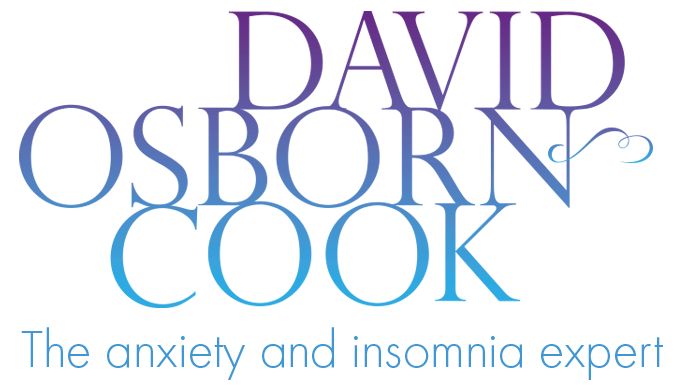Answering the FAQs about hypnosis, self-hypnosis and Hypno-CBT
Q: What is Hypnosis?
A: Hypnosis is a very safe and special way of using various naturally-occurring psychological and physiological states. Think of hypnosis as something we do every day when we watch TV or engage and focus on something to the exclusion of everything else. Everyone, in principle, can be hypnotised. Just relax, think positively and imagine the things being suggested. Hypnotherapy is a collaborative process in which you allow yourself to follow the guidance of the therapist by using your imagination to evoke positive emotions and rehearse behaviour change. This therapeutic alliance between client and therapist is crucial.
Hypnosis is not a state of mind control, you cannot do anything against your will and nobody has ever got ‘stuck’ in hypnosis.
Comedy stage hypnosis has little to do with clinical hypnotherapy.
Around 90% of people report being aware of everything that happens.
Q: What is Hypnotic Suggestion and what are Positive Affirmations?
Hypnotic suggestion is a means of experiencing certain helpful ideas at a level profound enough to directly influence our emotions and behaviour. We are more likely to integrate those suggestions when we are in a calm, relaxed state.
Positive Affirmations are words, ideas and beliefs that we say to ourselves. We give ourselves suggestions many times during the day, often without knowing it – often they can be negative beliefs or doubts which can make us anxious or down and impact our moods and our capabilities.
Q: I’ve heard a lot about Self Hypnosis. How does it work?
A: Self hypnosis is something I will teach you to do as part of our work. We will establish and agree your individual unique goals and positive suggestions together. Then I will teach you how to relax and calm your mind and your body to enter your own state of hypnosis. Your mind will move from beta state to alpha, where our breathing slows as we relax more, then you are in a state to repeat your affirmations and start to change your beliefs.
Many people experience a state of floating, a wonderful sense of calmness and therapeutic release which can be euphoric and prompt positive change in itself.
Q: I’m looking for some hypnosis therapy near me. Whereabouts are you and what areas do you cover?
A: If you want to find a hypnotherapist, I offer Hypnotherapy in Coulsdon, Purley, Caterham, Chipstead, Sanderstead, Epsom, Sutton, Banstead, Tadworth, East Grinstead, Kenley, Bromley, South London and Central London. I also offer hypnotherapy in Surrey. I offer private hypnotherapy, private CBT therapy and I also provide cognitive behavioral therapy hypnosis. You may also be looking for cbt therapy or mindfulness acceptance and commitment therapy – which I offer as part of my Hypno–CBT approach. I also offer online hypnosis, online hypnotherapy and online Hypno – CBT as well as ACT (Acceptance and Commitment Therapy).
Q: What is Hypno – CBT and how would you work with me?
A: Essentially it’s Cognitive Behavioral Hypnotherapy or a combination of Hypnotherapy and CBT (Cognitive Behavioral Therapy). It’s highly evidence based and works especially powerfully for anxiety, sleep and habits. CBT is considered the gold standard of therapies by the BMJ (British Medical Journal). From a CBT angle I look at your thoughts, emotions and behaviours and how they interact with each other. We do this in the first session, make an assessment and work towards your individual goals. Once we have established those goals, I form a path of treatment using a combination of pscyho-education, CBT techniques and bespoke hypnotherapy scripts and processes. We may include advanced breathing techniques, mindfulness, ACT (acceptance and commitment therapy) and mindfulness based cognitive therapy or MBCT.
Q: What issues do you cover?
A: If you haven’t found the issue you’re suffering with in the primary menus, here is a list of approaches and issues that I also cover –
Hypnotherapy for anger, hypnotherapy for bad habits, hypnotherapy for mental illness, hypnotherapy for negative thoughts, hypnotherapy for positive change, hypnotherapy for public speaking, hypnotherapy for insecurity, hypnotherapy for sports performance, hypnosis for drinking, hypnosis for pain relief, hypnotherapy procrastination, motivation hypnotherapy. Hypnosis for weight loss. Hypnotherapy for teenage anxiety. Hypnotherapy for anger management, hypnotherapy for performance anxiety, perimenopause insomnia.
If you have something you’re struggling with that isn’t listed here, please ask
Q: What kind of issues do you not cover?
A: I do not deal with conditions that are considered to be psychoses, which can include personality disorders and certain bi-polar conditions. I measure for depression using PHQ9 and GAD7 forms and if I consider that depression to be clinically too high, then I will refer the patient on to someone more suitable.
